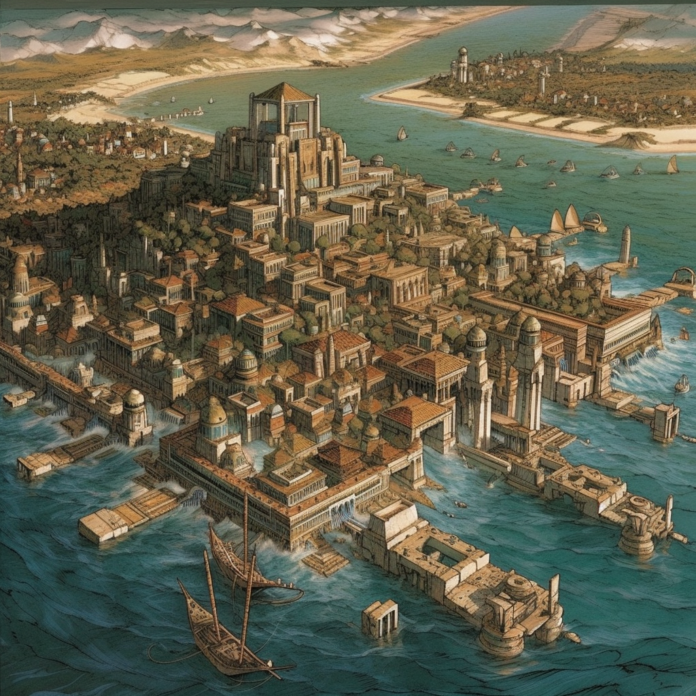
Fringe Score: Intriguing but unproven – based on ancient accounts with no definitive archaeological evidence.
Summary:
Atlantis is a legendary ancient civilization and island mentioned by the Greek philosopher Plato in his dialogues “Timaeus” and “Critias.” According to Plato, Atlantis was a powerful and advanced society that existed around 9,000 years before his time, eventually sinking into the ocean in a single day and night of catastrophic earthquakes and floods. Despite extensive speculation and numerous theories regarding its possible location and historical basis, the existence of Atlantis remains unproven and is considered intriguing but unconfirmed at Fringepedia.
Origins:
The story of Atlantis first appears in the works of Plato, who used the tale as a metaphor for his philosophical ideas about the decline of societies and the importance of virtue. In his dialogues, Atlantis is described as an advanced civilization with a highly organized government, advanced technology, and a formidable military. The Atlanteans eventually become corrupt and greedy, losing favor with the gods who ultimately destroy the island.
Theories and Speculation:
Over the centuries, numerous theories and hypotheses have been proposed regarding the possible location and historical basis for Atlantis. Some of the most popular theories suggest that Atlantis was located in the Mediterranean, the Caribbean, or even Antarctica. Others believe that Atlantis may have been inspired by real ancient civilizations that experienced natural disasters or were destroyed through warfare.
Despite the many theories, no definitive archaeological evidence has been discovered to confirm the existence of Atlantis or identify its location. Some researchers argue that the story of Atlantis is purely allegorical, while others believe that it may be based on a combination of historical events and cultural myths.
Arguments Against Atlantis:
Skeptics often cite the following reasons for doubting the existence of Atlantis:
- Lack of contemporary accounts: There are no known accounts of Atlantis outside of Plato’s works, raising questions about the story’s historical accuracy.
- Inconsistencies in Plato’s account: Some aspects of Plato’s description of Atlantis, such as the advanced technology and the timeline of events, are inconsistent with the known history and archaeological record of the period.
- Allegorical interpretation: Many scholars believe that Plato intended the story of Atlantis to serve as an allegory rather than a literal account of a lost civilization.
- Lack of archaeological evidence: Despite numerous searches and investigations, no definitive archaeological evidence has been discovered to support the existence of Atlantis.
Conclusion:
While the story of Atlantis remains intriguing and has inspired countless theories and speculations, its existence remains unproven due to the lack of definitive archaeological evidence and the inconsistencies in Plato’s account. At Fringepedia, we maintain an open mind to the possibility of a historical basis for the Atlantis legend, but recognize that the evidence supporting its existence is currently inconclusive.





